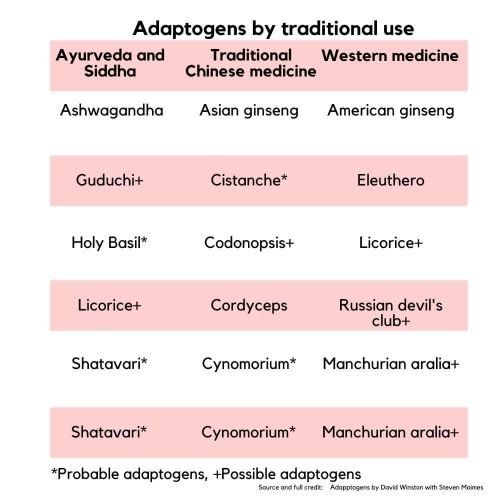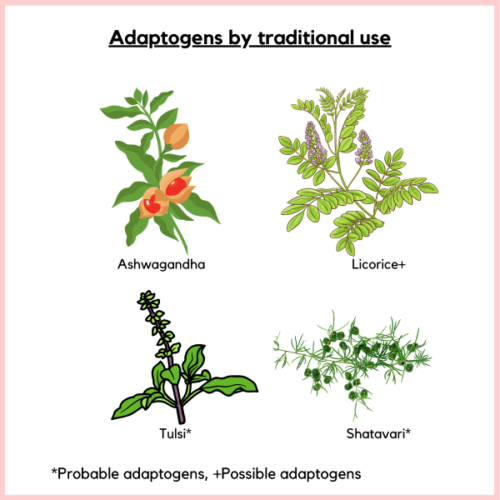I have seen a recent trend in beauty products, claiming “adapatogenic” benefits to the product and its sounds like another marketing gimmicky to you AND not something that is actually beneficial, then keep reading!
Historical context
van Wyk writes that adaptogens help your body better adapt to stress. Adaptogens relieve stress by modulating the release of stress hormones from the adrenal gland (so cortisol).
E.g. cortisol releases more sugar into the blood stream (as our body is in survival mode) that causes insulin to be released. A continuous release of cortisol and insulin (that happens when we are continually stressed) causes insulin resistance. Over time this translates to cholesterol and diabetes.
Ayurveda (dating back about 3,000 years) and Chinese medicine have favoured the use of herbs and plants in healing the body, for centuries.
Conclusion: : The way I think about adaptogens is that they help our body better cope with stress or help our cells rejuvenate and look after themselves.
Adaptogens now
The word “adaptogen” is a very Western concept and it’s a new word for herbs and plants that have already been used in Ayurveda and China in alternative medicine. Ayurveda (dating back about 3,000 years) and Chinese medicine have favoured the use of herbs and plants in healing the body, for centuries.
The general pharmacodynamic characteristics of an adaptogenic substance were defined by Brekhman 1968a, 1969b) as follows:
a) an adaptogen is almost non-toxic to the recipient;
b) an adaptogen tends to be non-specific in its pharmacological properties and acts by increasing the resistance of the organism to a broad spectrum of adverse biological, chemical, and physical factors;
c) an adaptogen tends to be a regulator having a normalizing effect on the various organ systems of the recipient organism;
d) the effect of an adaptogen is as pronounced as deeper are pathologic changes in the organism.
Trying to fit the definition of an “adaptogen” in one box
The problem from a Western perspective is that the definition itself of an adaptogen is vague and also measurement of an adaptogens performance is difficult b/c its one thing we are measuring. If an adaptogen has an overall holistic effect on well-being how would you measure that and be sure that its 100% attributable to that substance.
…so its easy to throw in the mix and using it as a MARKETING term…
And increasingly I am seeing “adaptogens” being used as a marketing term and consumers should be rightly sceptical because its not always the case that a product has the desired effect.
In fact, according to Winston D et al, there are about 20-30 adaptogens (including probable or possible) and I really love this table in their book. I have only partially reproduced this here

Sources and uses
Winston D with Steven Maimes Adaptogens
Wagner H. et al Plant adaptogens 111.* Earlier and more recent aspects and concepts on their mode of action Phytomedicine. Vol.6(4), pp. 287-300
https://www.sciencedirect.com/sdfe/pdf/download/eid/1-s2.0-S0944711399800233/first-page-pdf
